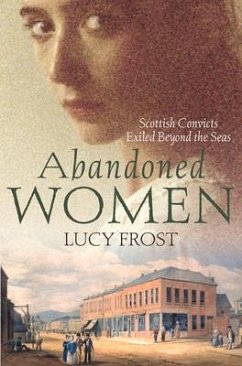In the early 19th century, crofters and villagers streamed into the burgeoning cities of Scotland, and families splintered. Orphan girls, single mothers, and women on their own all struggled to feed and clothe themselves. For some, petty theft became a part of life. Any woman deemed "habite & repute a thief" might find herself before the High Court of Justiciary, tried for yet another minor theft and sentenced to transportation "beyond Seas." Lucy Frost memorably paints the portrait of a boatload of women and their children who arrived in Hobart in 1838. Instead of serving time in prison, the women were sent to work as unpaid servants in the houses of settlers. Feisty Scottish convicts, unaccustomed to bowing and scraping, often irritated their middle-class employers, who charged them with insolence, or refusing to work, or getting drunk. A stint in the female factory became their punishment. Many women survived the convict system and shaped their own lives once they were free. They married, had children, and found a place in the community. Others, though, continued to be plagued by errors and disasters until death.
Hinweis: Dieser Artikel kann nur an eine deutsche Lieferadresse ausgeliefert werden.
Hinweis: Dieser Artikel kann nur an eine deutsche Lieferadresse ausgeliefert werden.








